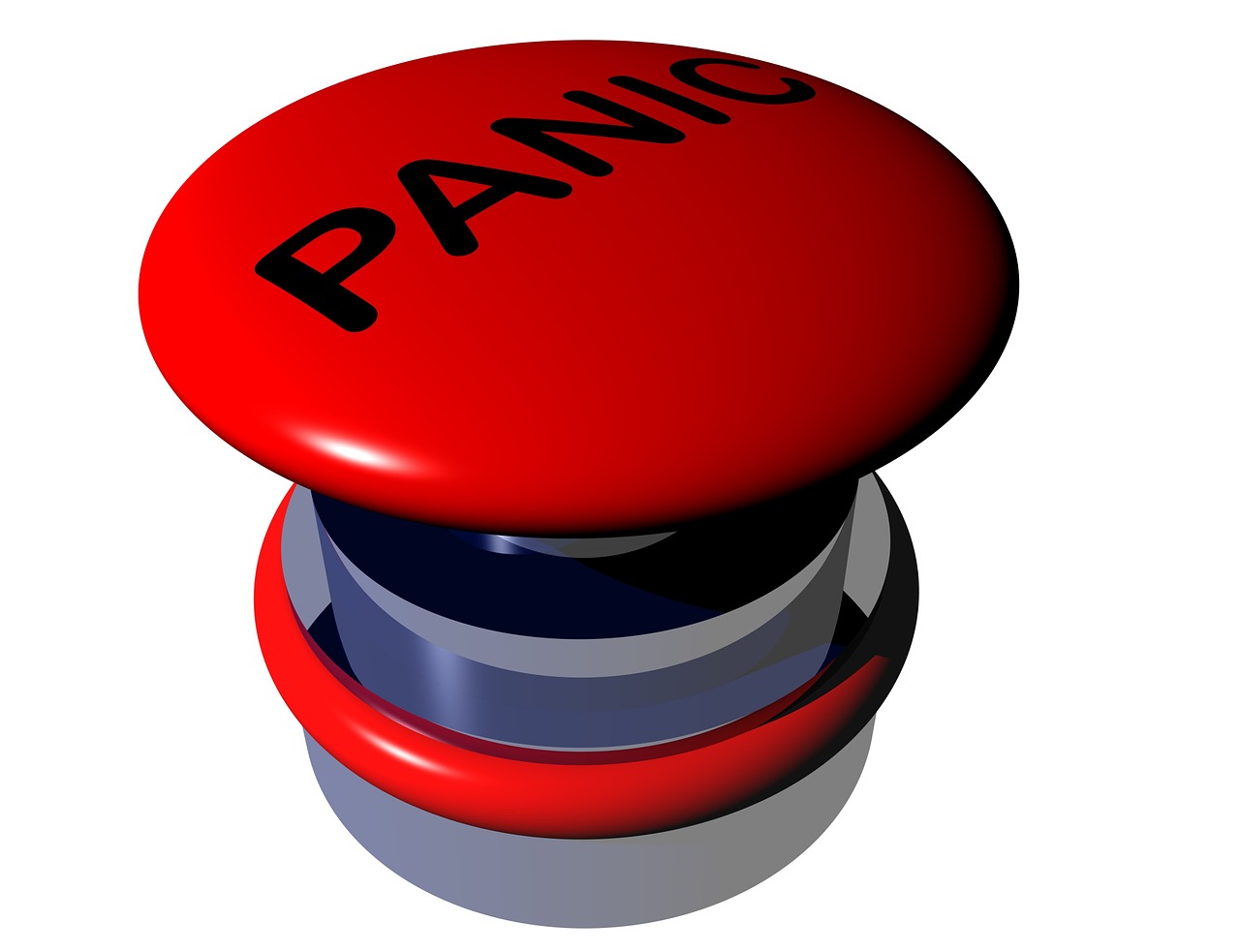
If you’ve ever experienced a Panic Attack, you know they are absolutely terrifying. It’s not unusual for people to end up in the Emergency Room because they think they are dying. Panic attacks are often mistaken for heart attacks and strokes because they are so debilitating. They can cause people to miss out on life because they occur out of the blue, and are incapacitating. According to Anxiety.org around 2-3% of the population in the United States suffer from Panic Attacks annually (roughly 6 to 10 million people a year).
This week, I’m going to talk about how to prevent Panic Attacks, and I also hope to give you some tools to utilize. If you or someone you care about has ever experienced a Panic Attack, I hope you can find some validation, relief, and tips today.
What is a Panic Attack?
Panic Attacks can be different from person to person. Some experience Panic Attacks frequently and can feel them coming on. Others may feel completely blindsided by one and feel they come “out of the blue”. Panic Attacks commonly begin in the teenage years, and may or may not continue into adulthood. Some people may only have one in their whole lifetime, while others may have them daily.
Panic Attacks often come on suddenly, and swiftly. You may not even feel like you are anxious at all. There may be no obvious danger or cause. Within a few minutes, a ton of physical symptoms may hit. While this is different from person to person, most will agree that it is absolutely awful and physically painful. Panic attacks will peak within a few minutes (most last around 10 minutes, but can be longer). You may feel physically and emotionally exhausted afterward.
Panic Attacks often co-exist with other mental health issues, including Anxiety, Depression, Agoraphobia, Addictions, etc.
Panic Attack Symptoms
There are many symptoms that comprise a Panic Attack, but here are the most common: Hyperventilating, shortness of breath, shaking, numbness or tingling in limbs, racing thoughts, heart racing (sometimes even feeling like it may beat out of your chest), chest pain (often described as an “elephant on your chest”). You may feel completely disconnected from your surroundings, almost like an out-of-body experience. Some people feel like they have tunnel vision or that the walls are closing in around them.
It’s also common to feel like you are dying. That is why many people end up in the ER for anxiety. You may feel like you’re choking, nauseous, you may vomit, feel dizzy or lightheaded, or sweat profusely (both hot and/or cold sweats). Most people will describe Panic Attacks like they feel they’re going crazy or going to lose control. It’s common to also feel impending doom, even if there is nothing to be fearful of. It’s not unusual to feel embarrassed afterward if someone witnessed you having a Panic Attack.
How to Prevent a Panic Attack
One of the easiest ways to prevent a Panic Attack is to relax your body if you feel one coming on. Obviously, when you are anxious or tense, it’s really hard to do this. However, it’s important that you learn techniques to relax each muscle group, in order to shorten the episode. Take deep breaths, while focusing on something you can visualize. A trained therapist can definitely help you learn ways to do this.
Self-talk is another way to get through or prevent a Panic Attack. When you can remind yourself that you are safe, and this will pass, you may be able to prevent or even shorten one. When you fight a Panic Attack and believe you are going to die, your anxiety actually increases. Instead, if you just accept the Panic Attack and let it pass, it will dissipate faster. Remind yourself that this is anxiety, and it will not hurt you.
There are coping mechanisms called grounding techniques that can help prevent or shorten a Panic Attack. Do something simple, like trying to describe your surroundings in detail, count backward from 100 by 3’s, or do a relaxation technique to help increase your body awareness. Also, singing a song out loud or in your head, or breathing from your diaphragm can be really helpful.
Treatment for Panic Attacks
Therapy is the number one treatment for Panic Attacks. In therapy, we teach clients how to utilize mindfulness and grounding techniques in order to prevent or pull out of a Panic Attack faster. It’s also really important for us to figure out why Panic Attacks are occurring. Oftentimes, just by talking through the anxiety-provoking things in their lives, my clients’ Panic Attacks will start to lessen. There is power in processing out loud what is causing them stress and anxiety. Oftentimes, we try to work backward to figure out why the Panic Attack occurred. Usually, we will discover that there are a lot of stress-inducing events that the client has experienced, but did not acknowledge. Sometimes it is important to sit in your anxiety, instead of avoiding or stuffing it.
Medication is also used to treat Panic Attacks. Some clients choose to utilize Anti-Depressants (SSRI’s), which can sometimes also be used as Anti-Anxiety medications. Drugs like Prozac, Zoloft, and Paxil are all helpful in treating anxiety disorders. Other clients choose to utilize Benzodiazepines, which are drugs like Xanax and Ativan. While these medications are more fast-acting, they are also more addictive. Your therapist and Doctor can help you decide what the best course of action for you will be.
Final Thoughts
If you are reading this, and realize that you suffer from Panic Attacks, please reach out for help. It’s important for you to have a space that is safe to process any anxious thoughts, as well as learn tools to help improve your quality of life.
*Christy Fogg, MSW, LCSW is a licensed therapist at Journey to Joy Counseling. Christy enjoys doing marriage/couples counseling, individual counseling, premarital counseling. She also provides family counseling, teen and adolescent counseling.
Journey to Joy Counseling serves the Indianapolis area, including Carmel, Fishers, Noblesville, Zionsville, and Westfield.



